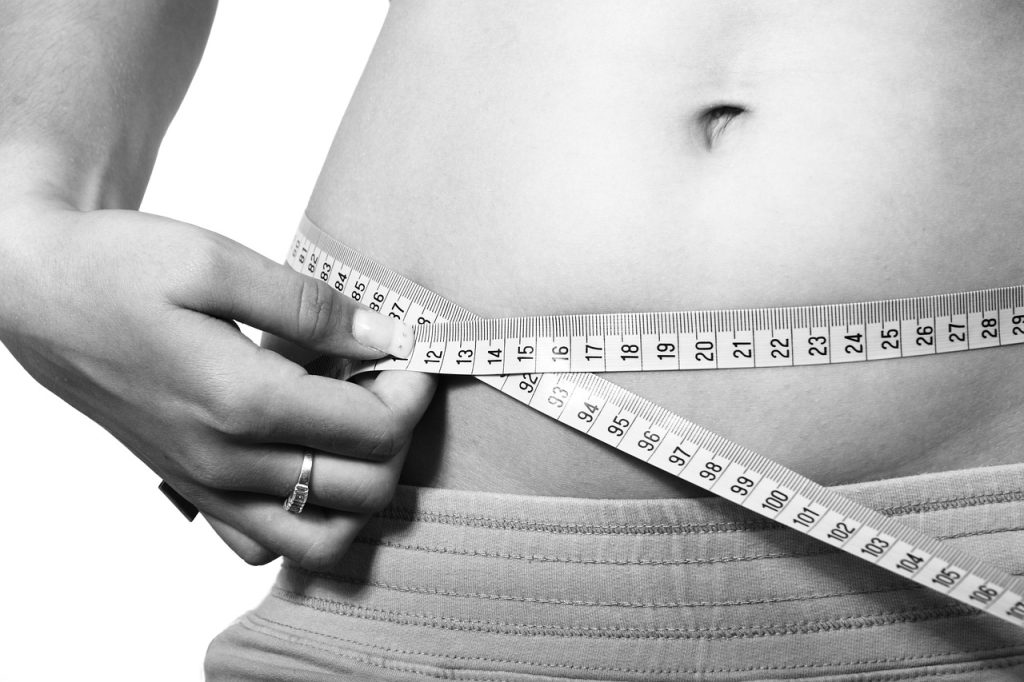When it comes to building six pack abs and strong core muscles, many people solely focus on the aesthetic benefits. However, there are far more advantages to having a strong core than just looking good. A strong core provides stability and support for the entire body, improving posture and reducing the risk of injuries. It also enhances athletic performance and helps with everyday activities such as lifting, bending, and twisting. In addition, a strong core can contribute to better balance and flexibility, making it an essential component of overall fitness. So, let’s explore the numerous benefits that having a strong core can bring, beyond just aesthetics.

Improved Posture
Helps maintain proper alignment
Having strong core muscles is essential for maintaining good posture. Your core muscles, which include the muscles in your abdomen, back, and pelvis, play a crucial role in supporting your spine and keeping it in proper alignment. When your core is weak, it can lead to poor posture, such as slouching or hunching forward. However, with a strong core, you can effortlessly maintain a neutral spine position, which promotes proper alignment and reduces the risk of postural issues.
Reduces strain on the spine
Another benefit of a strong core is that it helps reduce strain on your spine. When your core muscles are weak, the burden of supporting your upper body shifts to your spine, leading to increased pressure and tension on the vertebrae. This can result in back pain, muscle imbalances, and even spinal injuries. By strengthening your core, you alleviate some of the strain on your spine, allowing it to function optimally and reducing the likelihood of experiencing backaches or discomfort.
Prevents back pain
One of the most significant advantages of having a strong core is its ability to prevent back pain. Back pain is a common complaint among people of all ages, and it can significantly impact your quality of life. By strengthening your core muscles, you provide your spine with the support it needs, reducing the risk of muscle imbalances and unnecessary stress on the back. With a strong core, you can alleviate back pain, improve your overall spinal health, and enjoy a pain-free and active lifestyle.
Enhanced Stability and Balance
Core muscles provide a strong foundation
Strong core muscles provide a solid foundation for stability and balance. Your core acts as a stabilizer for your entire body by connecting your upper and lower body movements. When you have a stable core, it allows you to maintain balance and control during various activities, whether it’s walking, running, or performing complex movements. With a strong foundation, you can feel more confident and secure in your movements, reducing the risk of falls and injuries.
Promotes better balance
Having a strong core significantly improves your ability to balance. Balance is an essential aspect of everyday life, whether you’re standing, bending, or engaging in physical activities. By targeting your core muscles, you enhance your body’s proprioception, which is its awareness of its position in space. This heightened sense of balance allows you to navigate uneven surfaces, perform agile movements, and maintain stability in different positions or postures. With improved balance, you can confidently tackle any physical challenge that comes your way.
Reduces the risk of falls and injuries
As we age, the risk of falls and injuries becomes more prevalent. However, by developing a strong core, you can significantly reduce this risk. Falls can have severe consequences, especially for older adults, leading to fractures, hospitalizations, and a decrease in overall mobility. By focusing on core-strengthening exercises, you improve your stability and balance, making it less likely that you’ll stumble or lose control of your body. With a reduced risk of falls and injuries, you can maintain an active and independent lifestyle well into your senior years.
Increased Athletic Performance
Core strength improves overall athleticism
If you’re an athlete or enjoy participating in sports activities, having a strong core can greatly enhance your performance. Your core muscles are responsible for generating and transferring power throughout your body, which is crucial for athletic movements. Whether you’re sprinting, jumping, or swinging a racket, a strong core allows for more explosive movements and greater control over your body. By focusing on core exercises, you can improve your overall athleticism and excel in your chosen sport or physical activity.
Improves power transfer through the body
A strong core is key to efficiently transferring power through your body. When you engage in physical activities that require strength and power, such as weightlifting or throwing a ball, your core acts as a bridge between your upper and lower body. By having a solid and strong core, you maximize the transfer of force from your legs to your arms, optimizing your performance. The ability to effectively transfer power allows you to generate more speed, strength, and accuracy in your movements, giving you a competitive edge in sports or other physical endeavors.
Enhances performance in sports activities
Whether you’re an avid runner, a passionate tennis player, or enjoy team sports like soccer or basketball, a strong core can significantly enhance your performance. With a stable and powerful core, you can improve your agility, speed, and endurance, allowing you to excel in your chosen sport. Core strength helps you maintain proper form and technique, reducing the risk of injuries and enabling you to push your limits. By incorporating core exercises into your training routine, you can unlock your full athletic potential and take your performance to new heights.
Improved Functional Movement
Core muscles support everyday movements
Everyday movements, such as bending, twisting, and lifting, heavily rely on your core muscles. Your core provides the necessary stability and strength to perform these functional movements efficiently and without strain. Whether you’re bending down to tie your shoes, twisting to reach for something behind you, or lifting a heavy object, a strong core allows you to move with ease and minimal effort. By focusing on core exercises, you enhance your ability to perform these movements, making daily activities feel effortless and reducing the risk of strain or injury.
Facilitates easier bending, twisting, and lifting
When your core muscles are strong, it becomes easier to perform bending, twisting, and lifting motions. Weak core muscles can lead to improper posture and movement patterns, resulting in discomfort and even chronic pain. However, with a strong core, you have the necessary support and stability to execute these movements correctly. Your core muscles work in synergy with other muscle groups, such as your hips and back, to facilitate fluid and pain-free bending, twisting, and lifting. By prioritizing core strength, you can improve your functional movement abilities and maintain optimal physical health.
Enhances performance in daily activities
By improving your functional movement abilities through a strong core, you enhance your overall performance in daily activities. Whether it’s carrying groceries, playing with your children, or simply moving around your home, a strong core makes these tasks easier and more enjoyable. You’ll notice increased energy efficiency, reduced fatigue, and improved coordination, allowing you to accomplish daily tasks with greater ease and efficiency. Investing time and effort in strengthening your core will pay off in your everyday life, enabling you to live a more active and functional lifestyle.

Injury Prevention
Strong core muscles stabilize the spine
One of the key roles of your core muscles is to stabilize your spine. When your core is weak, the muscles surrounding your spine may struggle to maintain proper alignment and stability. This lack of stability can increase the risk of spinal injuries, such as herniated discs or strains. However, by strengthening your core, you provide a solid support system for your spine, reducing the likelihood of these injuries. A strong core helps distribute the forces placed on your spine more evenly, safeguarding it from unnecessary strain and maintaining its health and integrity.
Reduces the risk of muscle imbalances
Muscle imbalances occur when certain muscles in your body become stronger or tighter than others, leading to dysfunctional movement patterns and increased injury risk. Weak core muscles can contribute to muscle imbalances, as they are unable to adequately support and stabilize your body. However, by focusing on core exercises and building core strength, you promote balanced muscle development throughout your entire body. This balanced strength helps correct existing muscle imbalances and reduces the risk of future imbalances, minimizing the chances of strains, sprains, and other related injuries.
Supports proper biomechanics to prevent injuries
Having a strong core is essential for maintaining proper biomechanics, which refers to the efficient movement and coordination of your body’s musculoskeletal system. When your core is weak, it can disrupt the natural alignment and movement patterns of your joints, leading to overuse injuries and joint overloading. By strengthening your core, you ensure that your body’s movements are biomechanically sound and efficient, reducing the risk of injuries. Focusing on core exercises can help you maintain optimal alignment, joint stability, and muscle coordination, contributing to a lower risk of injuries during physical activities.
Better Breathing and Digestion
Strong core muscles aid in diaphragmatic breathing
A strong core plays a crucial role in facilitating proper breathing, specifically diaphragmatic breathing. The diaphragm is the primary muscle responsible for efficient breathing, and it relies on the support and stability provided by the surrounding core muscles. When your core is weak, it can restrict the movement of your diaphragm, leading to shallow and inefficient breathing. However, with a strong core, you can fully engage and utilize your diaphragm, allowing for deep, diaphragmatic breaths. Diaphragmatic breathing not only improves oxygen intake but also promotes relaxation, reduces stress, and enhances overall respiratory function.
Improves overall lung capacity
In addition to aiding in diaphragmatic breathing, a strong core also improves your overall lung capacity. As you strengthen your core muscles, you enhance your body’s ability to expand and contract the ribcage, allowing for greater expansion of the lungs. This increased lung capacity enables you to take in more oxygen with each breath, ensuring that your body is adequately supplied with the oxygen it needs to function optimally. By improving your lung capacity through core strengthening exercises, you may experience enhanced endurance, decreased breathlessness during physical exertion, and improved overall respiratory health.
Supports proper digestion and bowel movements
A strong core can also contribute to proper digestion and healthy bowel movements. Your core muscles are closely linked to the muscles of your abdomen and pelvis, which are involved in the process of digestion and elimination. Weak core muscles can lead to digestive issues such as bloating, constipation, or acid reflux. However, by strengthening your core, you promote better control and coordination of these abdominal and pelvic muscles. This improved control can enhance digestion, aid in the elimination of waste, and support optimal functioning of the digestive system. By incorporating core exercises into your routine, you can help maintain a healthy digestive system and prevent discomfort or digestive disorders.

Improved Flexibility
A strong core allows for better flexibility
Flexibility is an important component of physical fitness, and a strong core can significantly improve your overall flexibility. Your core muscles interact with the muscles of your hips, back, and shoulders, which play a vital role in maintaining flexibility throughout your body. By targeting your core muscles, you enhance their ability to support and engage these other muscle groups, facilitating greater range of motion. With improved core strength, you can achieve better flexibility in various activities, such as reaching higher, bending deeper, or stretching further. Increased flexibility not only enhances your physical performance but also reduces the risk of injuries caused by restricted movement.
Reduces muscle tightness and stiffness
Muscle tightness and stiffness are common issues that can limit your range of motion and hinder your physical activities. However, by having a strong core, you can effectively reduce muscle tightness and stiffness. A strong core helps maintain proper posture, which prevents certain muscles from becoming overly tight or shortened. Additionally, through core-strengthening exercises, you promote increased blood circulation to the muscles, aiding in relaxation and reducing muscle tension. By regularly incorporating core exercises into your routine, you can alleviate muscle tightness, improve flexibility, and experience greater ease and fluidity in your movements.
Enhances range of motion in various activities
Whether you’re engaged in sports activities, daily chores, or hobbies, a strong core can enhance your range of motion. A limited range of motion can hinder your ability to perform certain movements or tasks, potentially leading to injuries or diminished performance. However, by strengthening your core, you can expand your range of motion, enabling you to move more freely and comfortably. With a broader range of motion, you can navigate various activities with ease and confidence, allowing you to fully participate and excel in whatever physical endeavors you choose.
Postnatal Recovery and Support
A strong core aids in postpartum recovery
After childbirth, a strong core can aid in the postpartum recovery process. Pregnancy and delivery can place significant strain on a woman’s core muscles and pelvic floor. By focusing on core-strengthening exercises during the postpartum period, you can help restore the strength and stability of these muscles. A strong core provides support to the abdomen and lower back, reducing discomfort and promoting proper alignment as the body heals. Additionally, core exercises can assist in restoring the integrity and function of the abdominal muscles, helping to address issues such as diastasis recti. By incorporating targeted core exercises into your postpartum recovery routine, you can accelerate your healing process and regain strength and stability in your core.
Helps maintain pelvic floor health
The pelvic floor muscles play a crucial role in supporting the organs in the pelvis, maintaining urinary and bowel continence, and providing stability to the spine. During pregnancy and childbirth, these muscles can become weakened or stretched. However, a strong core can help maintain pelvic floor health and prevent or address related issues. Strengthening the core muscles indirectly supports the pelvic floor, as they work together to provide stability and support to the abdomen and pelvis. By incorporating exercises that target both the core and pelvic floor, such as pelvic tilts and Kegels, you can restore and maintain the strength and function of these muscles, promoting optimal pelvic floor health.
Increases overall strength and stability after childbirth
In addition to aiding in postpartum recovery and pelvic floor health, a strong core increases overall strength and stability after childbirth. The demands of caring for a newborn and engaging in daily activities can be physically taxing. By focusing on core-strengthening exercises, you can rebuild your strength and enhance your stability, making it easier to carry your baby, perform household chores, and navigate the physical demands of motherhood. A strong core provides a solid foundation for your entire body, allowing you to efficiently and confidently handle the demands of your new role as a mother.

Better Spinal Health
Strong core muscles provide support to the spine
Optimal spinal health relies on the support provided by strong core muscles. Your core acts as a supportive structure for your spine, helping to maintain its proper alignment and reducing the risk of spinal issues. When your core muscles are weak, the load and stress placed on your spine can become unevenly distributed, leading to imbalances and potential injuries. However, by strengthening your core, you provide the necessary support to your spine, promoting its health and integrity. A strong core acts as a natural corset, stabilizing your spine and reducing the strain placed on its structures.
Reduces the risk of spinal conditions
Spinal conditions, such as herniated discs, spinal stenosis, or degenerative disc disease, can cause chronic pain and limitations in mobility. However, by focusing on strengthening your core, you can reduce the risk of developing these spinal conditions. A strong core helps maintain proper spinal alignment, reducing the pressure on the vertebral discs and other structures. Additionally, strong core muscles contribute to better posture, which further minimizes the risk of spinal issues. By incorporating core exercises into your routine, you prioritize the health of your spine and decrease the likelihood of developing debilitating spinal conditions.
Improves overall spinal alignment and health
Having a strong core improves the overall alignment and health of your spine. Your spine is designed to have natural curves that allow for optimal shock absorption, movement, and balance. However, poor posture, weak core muscles, and sedentary lifestyles can disrupt these natural curves, leading to spinal misalignment and associated issues. By strengthening your core, you promote proper alignment of the spine, reducing the risk of imbalances and maintaining its natural curves. Improved spinal alignment not only enhances your posture but also ensures that your spine can move efficiently and without unnecessary stress, leading to improved spinal health and overall well-being.
Boosted Confidence and Mental Well-being
Having a strong core boosts self-confidence
Having a strong core can significantly boost your self-confidence. A well-toned midsection is often associated with physical fitness and a healthy lifestyle. When you have a strong core, you may feel more confident in your appearance and body image, which can positively impact your overall self-esteem. Additionally, knowing that you have the physical strength and stability provided by a strong core can increase your confidence in your physical abilities, whether it’s during workouts, sports activities, or everyday tasks. With boosted self-confidence, you’re more likely to embrace challenges, take risks, and strive for personal growth.
Improves body image and self-esteem
Beyond just aesthetics, a strong core has the power to improve your body image and self-esteem. Building a strong core requires commitment, discipline, and effort, and achieving your core strength goals can provide a sense of accomplishment and pride. When you invest time and effort into strengthening your core, you develop a greater appreciation for your body’s capabilities and a deeper connection with your physical self. By focusing on what your body can do rather than solely on how it looks, you cultivate a positive body image and develop a more profound sense of self-esteem and self-worth.
Enhances overall mental well-being
Engaging in core-strengthening exercises not only benefits your physical health but also enhances your mental well-being. Physical activity, such as core workouts, has been shown to stimulate the release of endorphins, which are natural mood boosters. These endorphins can promote feelings of happiness, reduce stress, and alleviate symptoms of anxiety and depression. Additionally, core exercises often require focus, concentration, and mindful movement, which can have a meditative effect, calming the mind and promoting mental clarity. By incorporating core exercises into your routine, you can experience improved mental well-being, increased resilience, and a more positive outlook on life.
In conclusion, the benefits of having a strong core extend far beyond just aesthetics. Strengthening your core muscles has numerous advantages for your overall health and well-being. From improved posture and reduced back pain to enhanced stability, athletic performance, and functional movement, a strong core forms the foundation for a healthy and active lifestyle. Additionally, a strong core contributes to injury prevention, better breathing and digestion, increased flexibility, and postnatal recovery. It also supports better spinal health, boosts confidence, and enhances mental well-being. By incorporating specific exercises that target your core into your fitness routine, you can unlock these benefits and enjoy the rewards of a strong and stable core.






